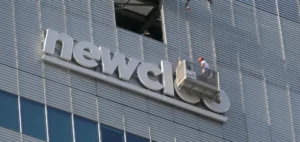Westinghouse Electric Company has completed production of the first batch of 8% enriched uranium fuel for the Vogtle-2 nuclear power plant operated by Southern Nuclear Operating Company in Georgia, USA.
The fuel was manufactured at the Springfields plant in northern England.
This development is part of a trend towards increased enrichment of nuclear fuel, aimed at meeting the specific needs of modern reactors.
The fuel, known as LEU+ Adopt, is made from uranium oxide enriched beyond the levels usually used, which typically range from 3% to 5% for commercial reactors.
The project is part of the U.S. Department of Energy’s (DOE) Accident Tolerant Fuel (ATF) program, which aims to develop fuels with greater resistance to accident conditions.
Operational benefits of high enrichment
The use of 8% enriched fuel could make it possible to extend the duration of operating cycles between refuelling shutdowns, which could help reduce operating costs for nuclear power plant operators.
In addition, the specific additives incorporated in this new fuel are designed to improve safety performance when operating at higher power levels.
According to Tarik Choho, President of Westinghouse Nuclear Fuel, the production of LEU+ Adopt represents a technical breakthrough in the nuclear industry.
This fuel will be processed into pins and integrated into four test assemblies in the UK, before being shipped to the USA for irradiation tests at the Vogtle-2 power plant, scheduled for 2025.
Regulatory outlook and broader adoption
The move to higher enrichment levels, such as 8% U-235, is gaining momentum in the nuclear industry, where optimizing fuel cycles has become a priority for some operators.
In the USA, several reactors have begun testing assemblies with enrichment above 5%, but this transition still requires specific waivers from the US Nuclear Regulatory Commission (NRC).
The DOE’s ATF program focuses on the development of fuels capable of withstanding a loss of core cooling for longer, giving operators more time to react in the event of an emergency.
A regulatory revision is scheduled for March 2027 to facilitate the adoption of these enriched fuels, by aligning licenses with new technological advances.




















